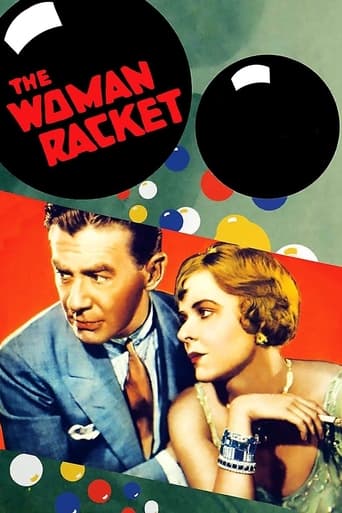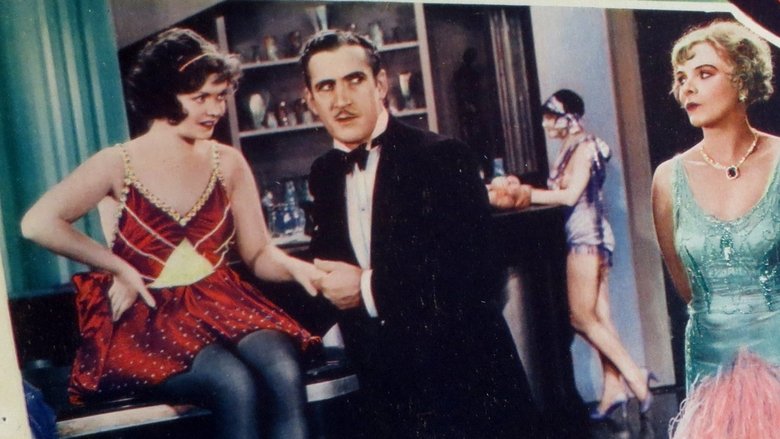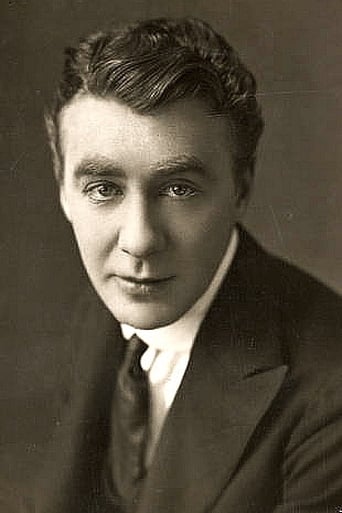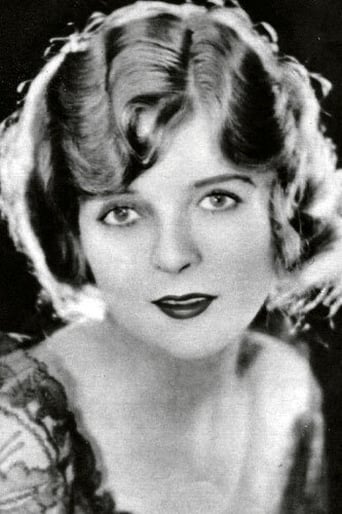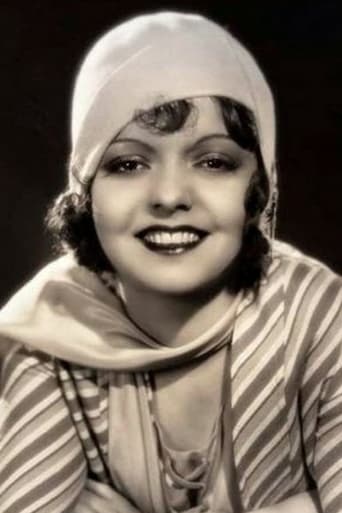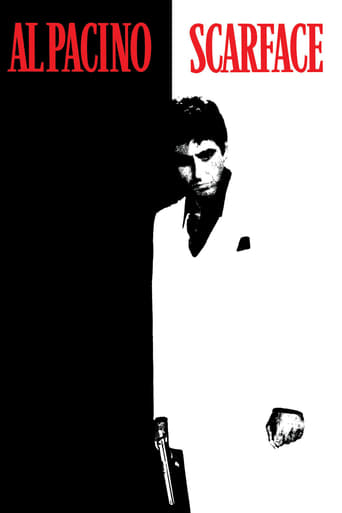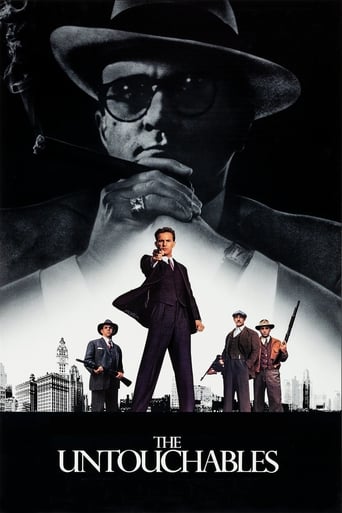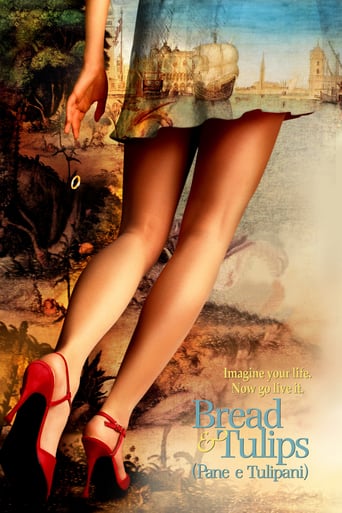The Woman Racket (1930)
During a raid, a cop lets a pretty speakeasy employee escape and later begins dating her. Although she loves him, his salary and dull life leave her wanting.
Watch Trailer
Cast


Similar titles
Reviews
Surprisingly incoherent and boring
A film with more than the usual spoiler issues. Talking about it in any detail feels akin to handing you a gift-wrapped present and saying, "I hope you like it -- It's a thriller about a diabolical secret experiment."
The joyful confection is coated in a sparkly gloss, bright enough to gleam from the darkest, most cynical corners.
An old-fashioned movie made with new-fashioned finesse.
Woman Racket, The (1930)** (out of 4) A cop (Tom Moore) saves a show girl (Blanche Sweet) from a pinch and soon the two are married. Things start off well but soon the wife grows bored of her housewife role and soon she's back in the nightclubs where she gets caught up with a dangerous gangster (John Miljan). THE WOMAN RACKET is your typical crime picture from MGM and sadly it's really not all that good. I think the main reason for people to tune into this thing is for Sweet who most film buffs will remember from her remarkable work with D.W. Griffith. This was one of her few sound films so that will be the main draw and there's no doubt that she's the best thing in the movie. As someone who has seen over a hundred Griffith films, it's always fun seeing his original troupe in other people's work. With Sweet she was always playing that "down home girl" and she was usually dressed in rags or made to look less attractive. It was really pretty strange seeing her in this role playing a sexy singer who uses her looks to gain a thing or two. I was really caught off guard at how well Sweet looked in this role but she also comes across extremely charming. There wasn't a single second where you don't believe her in the part and she perfectly sells that sexuality and charm. Moore, on the other hand, doesn't come off as well. I think he's a tad bit too laid back at times and it seems like he was struggling with some of the dialogue at times. He's certainly far from horrible but he doesn't add too much. Miljan is pretty good in the role of the gangster as he has no trouble coming off like a snake and he makes it easy to hate this character. Like many early talkies, this one here suffers from talking way too much as there are way too many dialogue scenes that just keep on and on. There are a couple musicals numbers, which aren't too bad and especially those performed by Sweet. Buffs will notice Sammy Lee served as musical director and he would eventually become a director at the studio doing various musical shorts. THE WOMAN RACKET just doesn't have enough life, energy or style to make it work so in the end it's mainly for those interested in Sweet.
During prohibition, a speakeasy is raided. Good-natured policeman Tom Moore (as Thomas "Tom" Hayes) discovers nightclub singer Blanche Sweet (as Julia Barnes) trying to avoid arrest. Stricken by her beauty, Mr. Moore allows her escape, and the two begin dating. Although they are happily married, Ms. Sweet becomes bored being a housewife and getting along on Moore's meager salary. His gift of a new dress tempts Sweet into sneaking out for the evening. She has fun seeing old friends and sings "He's Good Enough for Me" - signaling her heart remains with Moore... however...Against Moore's wishes, Sweet accepts a job entertaining at "The Blue Moon" and succumbs to the charms of smarmy boss John Miljan (as Chris Miller). Ironically, Sweet leaves Moore just before he receives a promotion to detective sergeant. Months later, Sweet has been lured into criminal activities with Mr. Miljan, who is unsurprisingly revealed as a gangster lord. When a mugging turns to murder, Moore arrives to investigate...The "talkie" technology is primitive here, but Sweet does well in her first feature length sound film. While not well remembered today, Blanche Sweet was one of the silent era's most renowned actresses - she was often considered on par with Mary Pickford and Lillian Gish. Like many, Sweet was considered old-fashioned when the medium changed, although her 1930s films reveal her in arguably better stead than her peers. Moore was the brother of silent stars Owen and Matt Moore (Pickford dynasty in-laws). "The Woman Racket" apparently did not advance its co-stars' careers, but it is an enjoyable time capsule.****** The Woman Racket (1/24/30) Robert Ober, Albert Kelley ~ Blanche Sweet, Tom Moore, John Miljan, Tenen Holtz
Blanche Sweet was a huge star during the silent era--having appeared in something like 150 films. However, by the time talking pictures came along, her career came to an almost complete halt. In 1930 she made three minor talkies--and then retired from the movies to play on Broadway and have a family. Only in the 1950s did she return for a few small TV roles. What's amazing about this is that her movie career was over by the time she was 34--even though she was a very popular silent star. I don't think the problem was her voice (although here in "The Woman Racket" they had her sing....and this was NOT a good idea but her speaking voice was fine) but simply tastes as well the Hollywood love of the very young.The plot idea for "The Woman Racket" is a bit hard to believe. The film begins with a raid on a speakeasy. When one of the cops finds a lady there and feels sorry for her (Sweet), he lets her go. Soon they begin dating and marry. As I said, it's a bit hard to believe. However, in a nod to reality, the marriage is not all it's cracked up to be for her. Staying home and being a housewife is dull stuff and soon Sweet is sneaking out to her old life as a singer in nightclubs--which was a serious problem since these sort of clubs sold liquor and it was during Prohibition. Eventually, she leaves him...and that's only the first quarter of the movie. What happens next? See for yourself.When you watch a film from this era, you need to change your expectations a bit. Early talkies had relatively poor sound, lacked incidental music and were a bit more static (as they hadn't yet figured out how to pick up the sound while folks moved about the set). So, taking this in mind and comparing the film to like films of the same era is how I rated this film--not compared to the much more polished products being released just a few years later. And, keeping this in mind, it's an average film--no better, no worse than others. It is a bit scandalous and moralistic. Tom Moore, who co-stars, has the on-screen personality of saw dust--and that also doesn't help much. But, the story is a big racy--and that might keep you interested. Had it been made a few years later, I would have probably given it a 3 or 4.By the way, according to IMDb, like many early talkies, this was filmed in both a sound and silent version. This made sense, as the switch to sound was not instantaneous--and many smaller theaters simply weren't wired for sound. Plus, in the case of MGM (the slowest of the major studios to switch to sound), I really think they were just hoping sound was a passing fad and hoped it would vanish.
Blanche Sweet plays a singer at a speakeasy who is caught by a cop during a raid, but instead of arresting her, he lets her go and eventually winds up marrying her. However, life as a cop's wife turns out to be not quite what she expected, and she longs for the excitement and fun of her former career. One day, after a particular trying day at home, she goes back to her old nightclub and meets up with the good-hearted owner (Tenen Holtz) and his slimy new business partner (John Miljan, terrific as usual). She leaves her husband to become the club's singer and, eventually, Miljan's mistress, and before she knows it she finds herself involved in a murder.This is an interesting little crime drama, more suited to Warner Bros. than MGM, but even though the pacing tends to be a little choppy and the camera-work is a bit shaky at times, it's eminently watchable. Blanche Sweet is pert, cute and charming and a pretty good singer, and few villains were slicker or more sophisticated than Miljan. Tom Moore as Sweet's cop husband leaves a bit to be desired; he's actually too old for her, pours on the Irish charm (and brogue) a bit too thick and comes across as a bit naive for a tough New York City cop. Nevertheless, it's a pretty good little picture overall, helped along greatly by Sweet (it's a shame her career never really took off during the talkie era).The direction is credited to two men, Robert Ober and Albert H. Kelley. This was Ober's only directorial effort--he was an actor--and Kelley was a "full-time" director. My best guess is that Kelley was brought in when the task proved to be too much for Ober. If so, he actually did a pretty good job. Kelley spent his career mired in the lower depths of Poverty Row, churning out shorts, low-rent crime dramas and cheap jungle pictures for the likes of PRC, Monogram and Republic. This looks like it was his shot at big-time features, and for some reason he didn't--or couldn't--capitalize on it. It's too bad, because he shows potential here that was absent in most of his subsequent pictures.Overall this is definitely a picture to watch. Although it was made in 1930, I've seen plenty of films that came out several years after this that weren't as well-made, fluidly paced, well-shot or entertaining as this is. Give it a shot.

